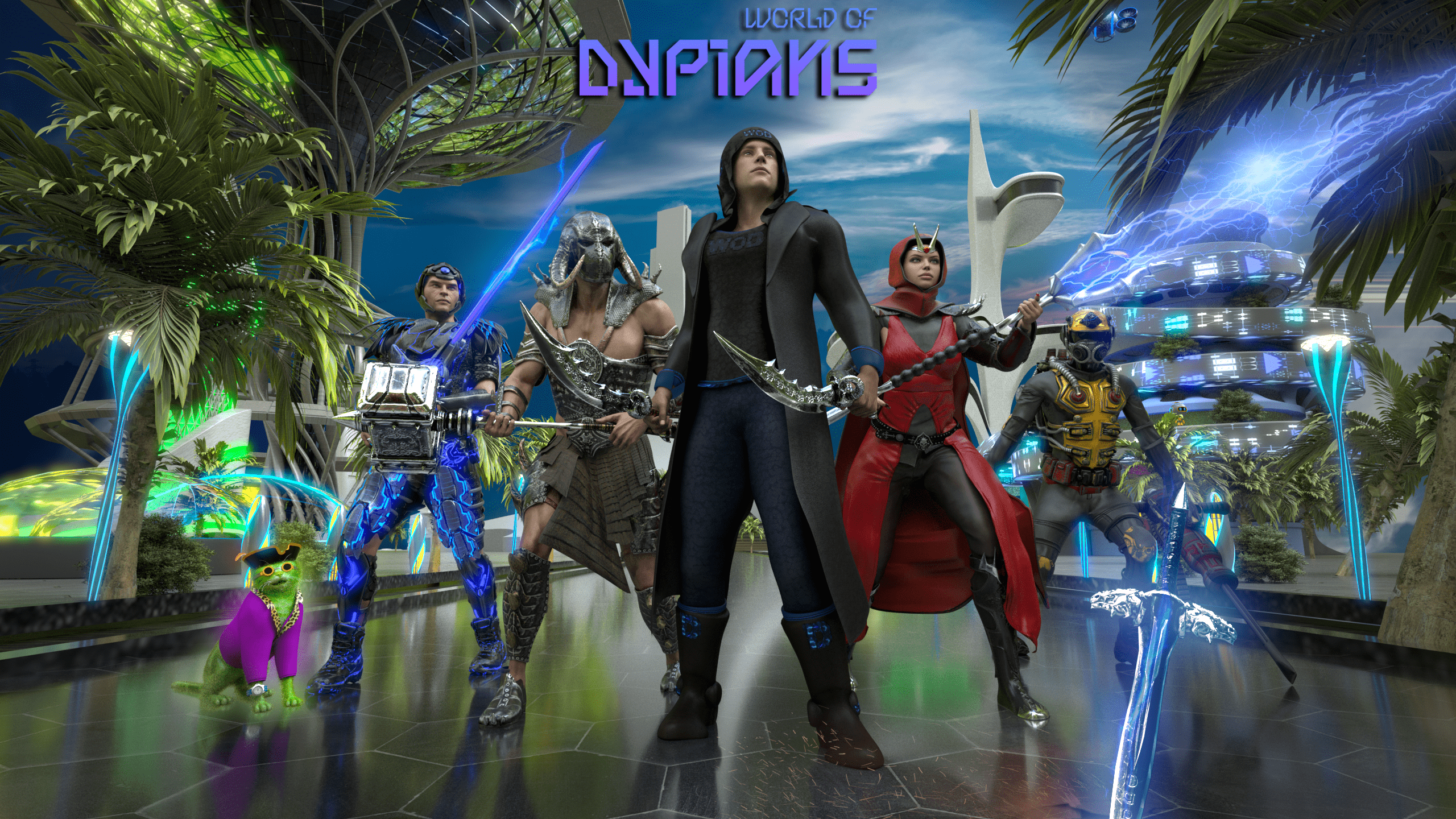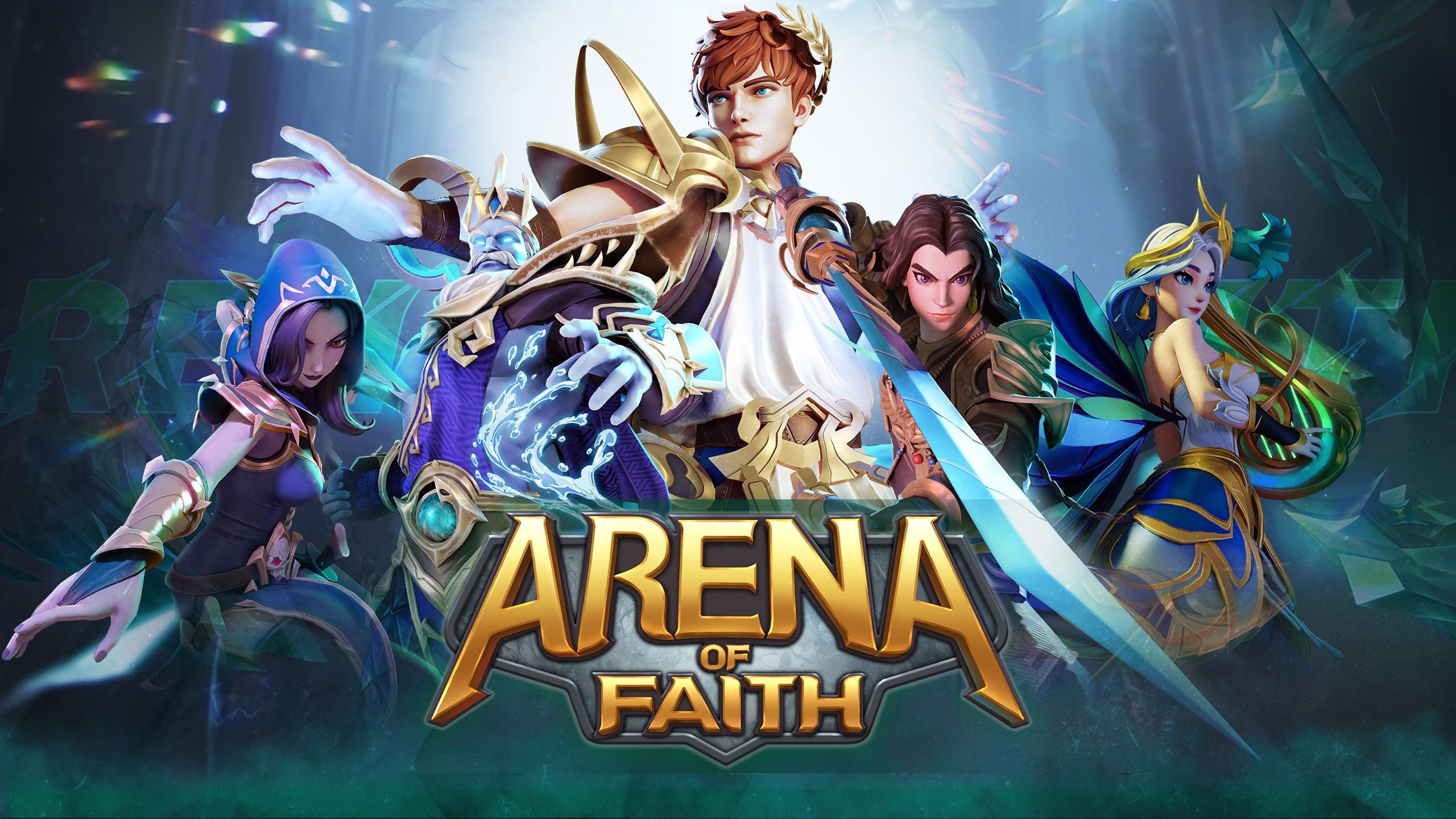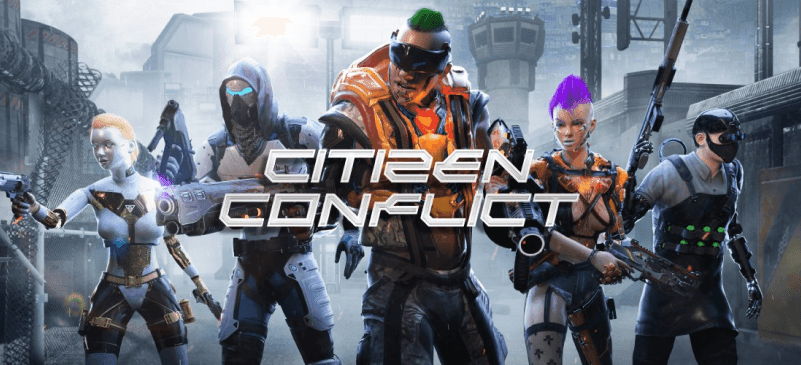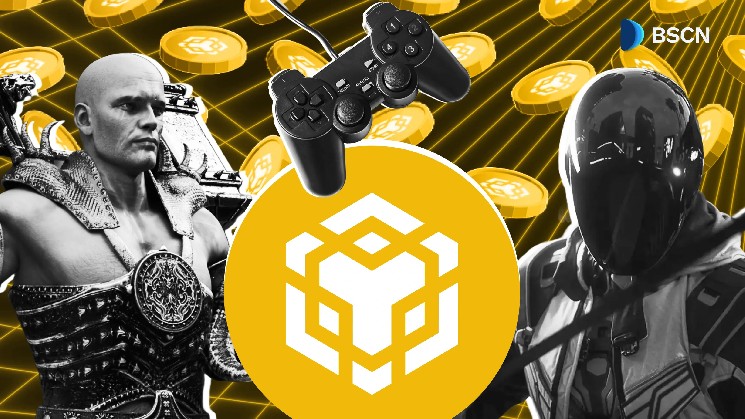With over 4,000 decentralized apps and more than 500 blockchain games, BNB Chain is leading the charge in Web3 gaming. Developed by Binance, BNB Chain offers faster speeds, lower latency, and greater scalability compared to Ethereum.
Its Proof of Staked Authority (PoSA) mechanism enables 3-second block times—perfect for fast-paced play-to-earn games. Thanks to EVM compatibility, developers can easily build or migrate dApps, making it a top choice for game studios.
From fantasy RPGs to expansive metaverses, BNB Chain is home to a wide range of blockchain games. Let’s dive into the five most promising titles dominating the scene in 2024.
1. Seraph: The Leading Action RPG on BNB Chain
Seraph is a full-fledged AAA blockchain game blending classic gameplay with modern Web3 tools. Set in a dark fantasy universe, the game allows players to collect rare items, complete quests, and battle enemies while unlocking real economic value.
Since its alpha launch in April 2023, Seraph has already amassed over 90,000 active players and generated more than $10 million in revenue. Its recent Season 0 release solidified its place at the top of the BNB Chain gaming charts.
What sets Seraph apart is its “blockchain revealed” mechanic. Players start with a traditional experience. But once they reach level 60, NFT-based features unlock. These NFTs offer real utility—upgrades, exclusive content, and tradeable items.
Its ActPass system removes onboarding friction for Web2 users. Players can log in using email or social media and manage wallets with ease. Moreover, Fiat payments and automated gas handling make blockchain invisible in the background.
Image: Seraph
2. World of Dypians: A Web3 Metaverse with Real Impact
Imagine World of Warcraft, but powered by NFTs, DeFi, and AI—that’s World of Dypians (WoD). Built on the BNB Chain, WoD spans 2,000 square kilometers of virtual terrain, letting players build, battle, and collaborate in a fully decentralized world.
Players can own land, trade items, and participate in governance. With over 175 million on-chain transactions and 320,000 NFTs sold, the platform is gaining serious traction.
This MMORPG is now available on Epic Games, with a growing user base of 1.4 million monthly players. Its recent feature in the Binance Industry Map and recognition from the BNB Chain DAU Incentive Program proves its legitimacy.
Worht noting, WoD drew 400,000 participants during the BNB Chain’s Festive 4YA celebration. Its wide appeal stems from a strong mix of community engagement, deep lore, and financial incentives.
WoD’s backers include Castrum Capital and IBC Group, with $4 million in raised funding and $1.5 million in grants from top crypto ecosystems. This ensures the game continues to expand its infrastructure and player tools.

Image: World of Dypians
3. Karat Galaxy: Interstellar DeFi Meets Play-to-Own
Karat Galaxy is more than just a game—it’s a full Web3 ecosystem where mining, staking, and gaming come together to offer real-world rewards. Players extract a limited resource called KARAT tokens through mining missions and space battles. This isn’t just about fun; it’s also a play-to-own model where digital assets hold tangible value.
The game’s economy revolves around KARAT, a native token with a capped supply of 100 million. A built-in buyback and burn mechanism reduces the token’s circulation over time, creating a deflationary system. This approach is designed to support long-term value, appealing not only to gamers but also to crypto investors looking for sustainable utility.
Everything earned in the game—whether tokens or NFTs—belongs to the player. NFTs enhance mining efficiency by boosting hashpower, and they’re fully tradable on external marketplaces. These assets are gained through gameplay or blind boxes, giving players multiple ways to build value.
Staking plays a major role in progression. When players stake their KARAT tokens, their hashpower increases, making mining more effective. The longer the stake duration, the higher the returns. If a player unstakes, they retain the tokens, but their mining efficiency drops, adding a strategic layer to how resources are managed.
DeFi features are seamlessly integrated into the gameplay. Players can swap tokens like CAKE for in-game currency, access liquidity pools, and use decentralized exchanges without leaving the game. This integration creates a smooth user experience and extends the utility of well-known DeFi tools into the gaming world.
The reward system is layered and dynamic. Players earn through mining, battling, completing missions, and joining special events. Every action within the game has the potential to generate value, making Karat Galaxy an attractive option for both casual players and dedicated grinders.

Image: Karat
4. Arena of Faith: A Tournament-Driven Web3 MOBA
Arena of Faith brings competitive esports to the blockchain. Built as a 5v5 multiplayer online battle arena, it merges strategy, fast-paced combat, and true digital ownership. The game isn’t just about winning matches—it’s about participating in a growing community, competing in structured tournaments, and collecting blockchain-powered assets.
At its core, Arena of Faith is designed for competitive play. Teams can register for Arena Rooms, seasonal events, and Cup Matches with scalable prize pools. The tournament formats mirror professional esports structures, with group stages, elimination brackets, and best-of series ranging from BO1 to BO5. To enter, players need either tournament tickets or in-game NFTs, giving digital items direct value in competition.
Gameplay rewards strategy and skill. The main goal is to destroy the enemy’s crystal, but players must first gather coins by defeating enemies and completing objectives. These coins are converted into equipment that enhances gameplay performance. Before matches begin, players choose two arcane skills, which serve as active powers and create strategic flexibility during combat. This mechanic introduces constant variation and rewards quick thinking and adaptability.
Unlike traditional MOBAs, Arena of Faith stores every in-game item—equipment, cosmetics, and more—on-chain. Players have full control of their assets and can trade, stake, or sell them on supported marketplaces. Items are no longer locked to a single account; they become part of a decentralized digital economy.
The game also enables user-generated tournaments. Guilds, influencers, and community members can host their own events, complete with custom rules, formats, and prizes. This adds a powerful social layer and gives the community direct influence over the competitive scene. By combining esports professionalism with blockchain freedom, Arena of Faith stands out as a forward-thinking MOBA in the Web3 space.

Image: Arena of Faith
5. Citizen Conflict: A Cyberpunk Shooter Built for Web3 Esports
Citizen Conflict is an ambitious Web3 project set in a dystopian future, built using Unreal Engine 5. The game drops players into the gritty, neon-lit Ether Islands, a cyberpunk city filled with corruption, chaos, and ruthless syndicates. Players assume the role of powerful heroes who fight for dominance across districts, each with its own rules, politics, and dangers. What sets this game apart is how it blends storytelling, skill-based combat, and blockchain-powered ownership.
Set in the 2100s, the world of Citizen Conflict imagines a broken Earth where climate collapse forced a centralized planetary government. Those who resisted were cut off from trade and financial systems, and out of this fracture, the Ether Islands emerged—a lawless region ruled by syndicates, not governments. These syndicates—Korpo, Hackhunters, and Midnight—each have their own goals, ethos, and methods. Korpo, for example, thrives on corporate manipulation and financial control, while Hackhunters are mercenaries of the blockchain. Midnight represents the street-level royalty—rebels who refuse to follow any rules.
What makes Citizen Conflict unique is its class-based system, where each hero has a distinct role on the battlefield. Whether it’s the aggressive Assaults, the tactical Specialists, or the healing Medics, every class brings value. Players need to think strategically, building squads that can adapt to different situations. The diversity of gameplay styles ensures that both solo players and team-oriented gamers can find a fit. The game’s design focuses on fast-paced, skill-driven gameplay with a high degree of personalization.
Beyond its gameplay, Citizen Conflict is deeply rooted in Web3 ideals. All in-game items—heroes, skins, weapons, masks—are NFTs. Players can buy, sell, and trade these assets on QORPO World’s native marketplace or on secondary platforms like OpenSea.
The game doesn’t force players into the blockchain world either. New users are given a built-in QID wallet on sign-up, and those who prefer not to deal with crypto or NFTs can still play the game as a standard free-to-play title.

Image: Citizen of Conflict
In-app purchases are optional and limited to battle passes during the Alpha 4.0 phase. Players don’t need to spend money to enjoy the full experience, and while the battle pass is not refundable, it unlocks exclusive rewards. Tournaments and loot-based events add more value, giving skilled players a chance to earn stablecoins and rare digital assets. The project also promotes community-driven development. Players can vote on features and roadmap decisions through QORPO World, giving them a real voice in how the game evolves.

